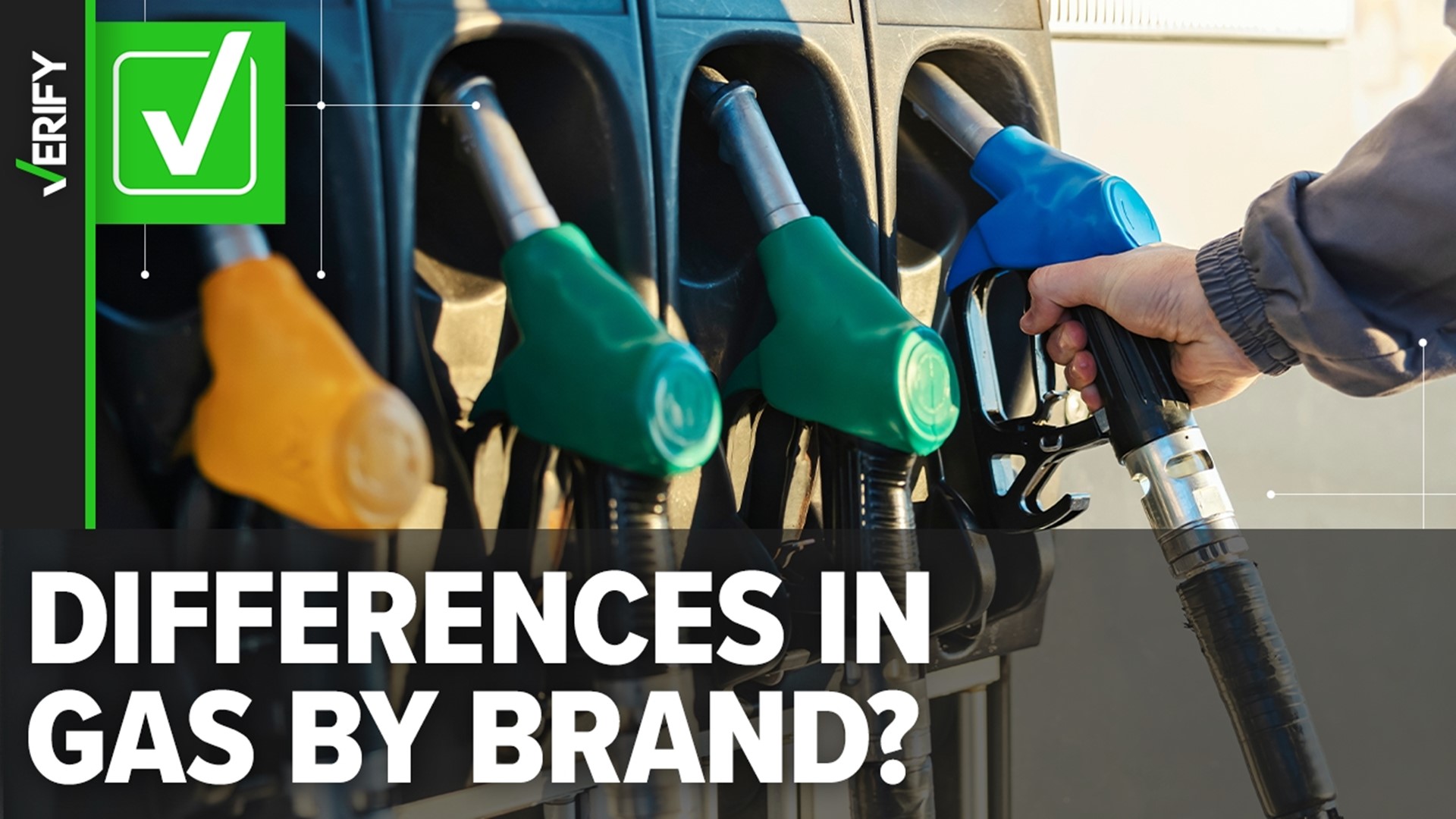To many people, gas is gas — as long as it’s conveniently located, it’s good enough for them. But is there more to know about what’s coming out of the pump? Is there a difference between brands?
That’s the question VERIFY reader Hugh asked after they noticed their car got worse gas mileage after changing the brand of fuel they were purchasing.
THE QUESTION
Is there a difference in the gas between different gas station brands?
THE SOURCES
- AAA
- NACS, a trade association for convenience stores and fuel retailers
- Environmental Protection Agency (EPA)
- Consumer Guide Automotive, an auto review organization
- DeBoer’s Auto, a body shop located in New Jersey
THE ANSWER
Yes, there is a difference in fuel between gas station brands.
WHAT WE FOUND
All regular grade and premium grade gasoline in any given region use the same base fuel, AAA says. What’s different is the unique mix of additives that each brand blends into their fuel before it gets to the fuel pump and into your car.
Fuel brands mix in additives when their tankers are loaded at fuel terminals, says the NACS, a trade association for convenience stores and fuel retailers.
The additives are designed to clean and protect the engine of a car by preventing the excessive buildup of carbon deposits, the NACS and AAA say. Those deposits can reduce performance and fuel economy, and cause other drivability problems.
The Environmental Protection Agency (EPA) requires all gas retailers use a minimum level of additives, the NACS explains. According to EPA regulations, these additives must reduce an engine’s deposits by at least 10% compared to additive-free fuel.
While these standards helped minimize certain deposits, some automakers felt the standards did not go far enough, AAA says. And so, in 2004, these automakers established a gas standard called “Top Tier,” which requires more additives that they say are of a higher quality. In order for a gas retailer to be a licensed Top Tier gas supplier, it has to meet the requirements established by the automakers.
AAA conducted a study in 2016 on the long-term impact of gas with and without an “enhanced additive package,” such as Top Tier gas. The study showed long-term use of gas without an enhanced additive package “can lead to reductions in fuel economy of 2-4%, drivability issues, and increased emissions.”
The AAA study found that there was a greater quantity of harmful deposits in engines of cars that didn’t use Top Tier fuel than there were in cars that did use Top Tier fuel.
Top Tier’s website maintains a list of gas retailers that are certified retailers of the Top Tier gasoline standard. This list includes big national brands like Exxon and Shell, but also includes some local retailers.
But “Top Tier” gas stations aren’t the only retailers that sell high-quality gas, says Consumer Guide Automotive, an auto review organization. Top Tier certification is optional and costly, and so some gas stations choose not to get certified.
“This means that there are likely a number of gasoline retailers selling fuel that qualifies for Top Tier certification, but have chosen not to license the rights to say so,” Consumer Guide Automotive wrote in 2019.
So should you worry about making sure you buy gas with enhanced additives? DeBoer’s Auto, a body shop located in New Jersey, says that occasionally using discount gas without as many additives likely won’t hurt your vehicle in the long run.
AAA also found that, in 2016, Top Tier fuel brands were on average about 3 cents more expensive per gallon than other fuel brands at that time.

